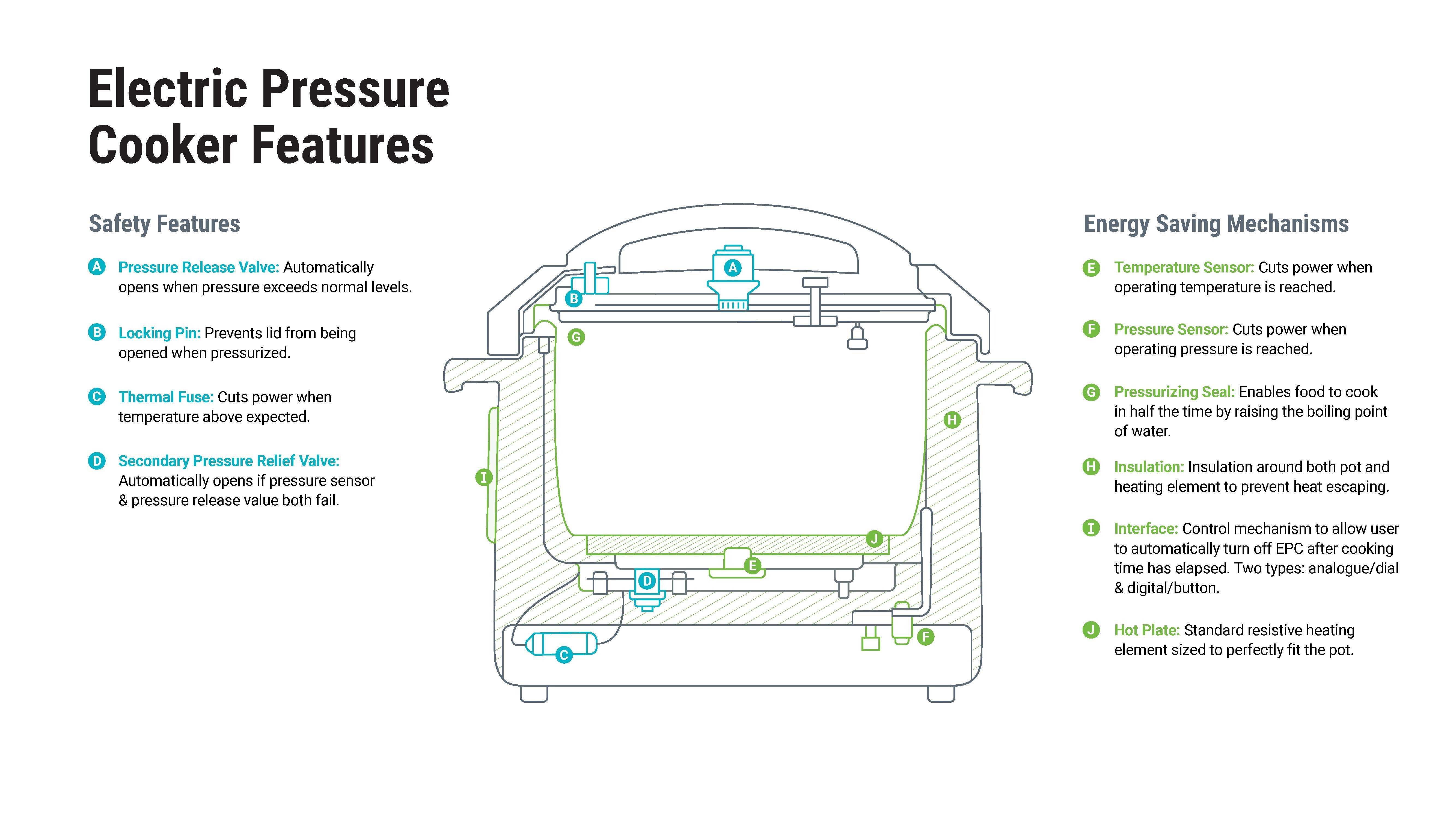Electric Pressure Cookers Enhance Community Resiliency
This analysis offers insights into the role of electric cooking in building community resiliency during a global shock, like the COVID-19 pandemic.
In 2020, the Global LEAP Awards launched the inaugural Electric Pressure Cooker (EPC) Competition. Through the Electric Cooking Impact Series, we share insights into the role of EPCs in enhancing community resiliency to global shocks like the COVID-19 pandemic.
As a result of the COVID-19 pandemic, millions of families across the globe are spending more time at home and are now responsible for previously outsourced daily chores like food preparation. In Kenya, COVID-19 has led to increased sales of electric pressure cookers (EPC) among top retailers. With support from EnDev, the Global LEAP Awards Results-Based Financing programme is facilitating the sale of 5,000 EPCs in Kenya to bolster community resiliency to COVID-19.
COVID-19 Leads to Increased EPC Sales
One week after the first case of coronavirus was reported in Kenya, President Kenyatta announced a nationwide dusk-to-dawn curfew and advised all citizens to stay home. This mandate closed restaurants and markets that catered to millions of daily patrons across the country, and an estimated two million domestic workers responsible for preparing meals for the growing middle-class were required to stay home.
While many businesses have been severely impacted by the pandemic, top appliance retailers in Kenya reported an increase in the sale of electric pressure cookers, a convenient, cost-effective and energy-efficient cooking solution.

The Dangers of Biomass Cooking
Exposure to household air pollution (HAP) from hazardous biomass fuels like wood, charcoal, and kerosene leads to the death of 14,300 Kenyans per year, directly impacting the health of 14.9 million. Acute respiratory infections, often caused by HAP, are the second leading cause of death in the country, accounting for 26% of all hospital deaths.
In an Efficiency for Access Coalition pilot studying the uptake and impact of EPCs with PowerGen microgrid customers in rural Tanzania, users reported that health issues like eye irritation and coughing improved with EPC usage. Although customers continued “stove stacking” and still used biomass to cook certain dishes, EPCs did reduce some exposure to HAP.
Women and children are the main groups affected by HAP in households using open fires or charcoal. In response to the pandemic, the Government of Kenya has closed all in-person schools for the duration of the year. Now families must prepare all daily meals and children face greater risk of exposure when stuck at home surrounded by biomass cooking.
Scaling Electric Cooking through Financing Mechanisms
The high upfront cost of switching to sustainable cooking solutions like EPCs is the most widely cited challenge to e-cooking in low-income communities. While common charcoal stoves sold in markets across Kenya cost between $3-5 on average, EPCs can range from $90-200 USD. The Tanzania study found that the majority (86%) of EPC customers could not have afforded the appliance without a loan facility.
Greater access to consumer financing options, including more local currency financing and longer loan tenors, would increase uptake of EPCs. Donors, investors and other stakeholders involved in financing projects in the cooking sector must allocate more resources to support the availability of pay-as-you-go (PAYGo) contracts. PAYGo and financing facilities will assist households frustrated by the increasing costs of traditional fuels transition to more sustainable and cost-effective cooking mechanisms.
LEAP+RBF seeks to increase the uptake of EPCs and transition households in urban, peri-urban and rural areas to more sustainable sources of energy. Through the pilot, the Global LEAP Awards aims to demonstrate the role of e-cooking in building healthy, safe and resilient communities.
The Global LEAP Awards Results-Based Financing EPC pilot is supported by EnDev. The Global LEAP Awards is currently conducting the inaugural Electric Pressure Cooker Competition to identify best-in-class EPCs suitable for off- and weak-grid environments.
For more on electric pressure cookers:
- The Global LEAP Awards Launches Competition for Electric Pressure Cookers
- Electric Pressure Cooking: Accelerating Microgrid E-Cooking Through Business & Delivery Model Innovations